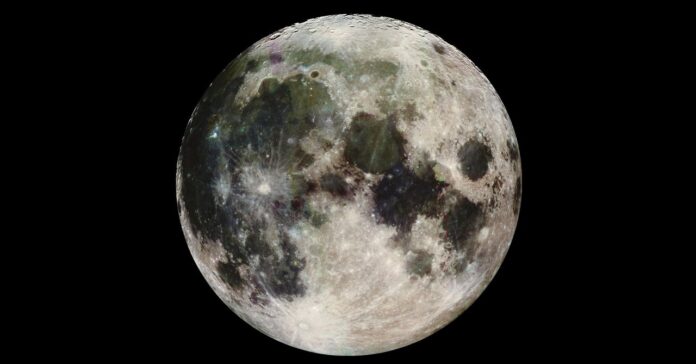Representation: NASA
Their research seems to be convincing, says Andrew Rivkin, a planetary scientist at Johns Hopkins College’s Implemented Physics Laboratory who research the composition of asteroids and who used to be no longer concerned within the paper. “Wanting going and grabbing a work, like NASA simply did with Bennu, that is almost certainly as with reference to conclusive as we get,” he says. Rivkin emphasizes that Kamo’oalewa is an strange object: Out of a few 80,000 meteorites gathered on Earth, only some p.c have come from the moon, and of the 1,382 meteorite falls noticed and documented by way of other folks, none had been lunar.
The researchers to find that Kamo’oalewa has almost certainly been placing round for hundreds of thousands of years, no longer many years, like different gadgets in such orbits. However its orbit isn’t solid, because of the vintage three-body drawback, through which the chaotic gravitational affect of 3 our bodies—the Earth, the solar, and Kamo’oalewa—will ultimately nudge it in order that it will get kicked out and flies away.
Their astronomical sleuthing continues, together with inspecting lunar craters that experience remained necessarily undisturbed for eons. Small adjustments within the preliminary stipulations of the fashions, similar to the scale of the asteroid that made the have an effect on, the place it hit the moon, and at what perspective, have dramatic results on an ejected lunar boulder’s trajectory. They infer a kilometer-sized asteroid made that important crash, and they may be able to make inferences in regards to the have an effect on too. “In response to the most likely stipulations to provide this type of orbit, coming from the moon, that will require a crater hundreds of thousands of years previous and tens of kilometers in measurement,” Castro-Cisneros says. It most likely smashed into the trailing facet of the moon, he says, and so they’re now seeking to pinpoint the suitable crater that Kamo’oalewa introduced from.
Kamo’oalewa’s lunar provenance additionally has implications for doubtlessly hazardous Earth-bound asteroids that NASA and different organizations seek the heavens for. It approach other folks must additionally believe orbits originating from the moon, no longer simply rocks flung out of the asteroid belt. NASA is scoping for asteroids 140 meters in diameter and bigger, an identical in measurement to the only the DART spacecraft smacked into to check deflection tactics. Close to-Earth gadgets from historic moon affects would almost certainly be 100 meters or smaller, Malhotra says, however the ones are nevertheless referred to as “town killers,” bad sufficient to purpose well-liked destruction in the event that they had been to strike the Earth.
That almost certainly gained’t be Kamo’oalewa’s destiny, however Malhotra and Castro-Cisneros’ analysis displays that there are probably others in the market adore it someplace.





 #shorts #shortsfeed #nature #youtubeshorts #iciness
#shorts #shortsfeed #nature #youtubeshorts #iciness